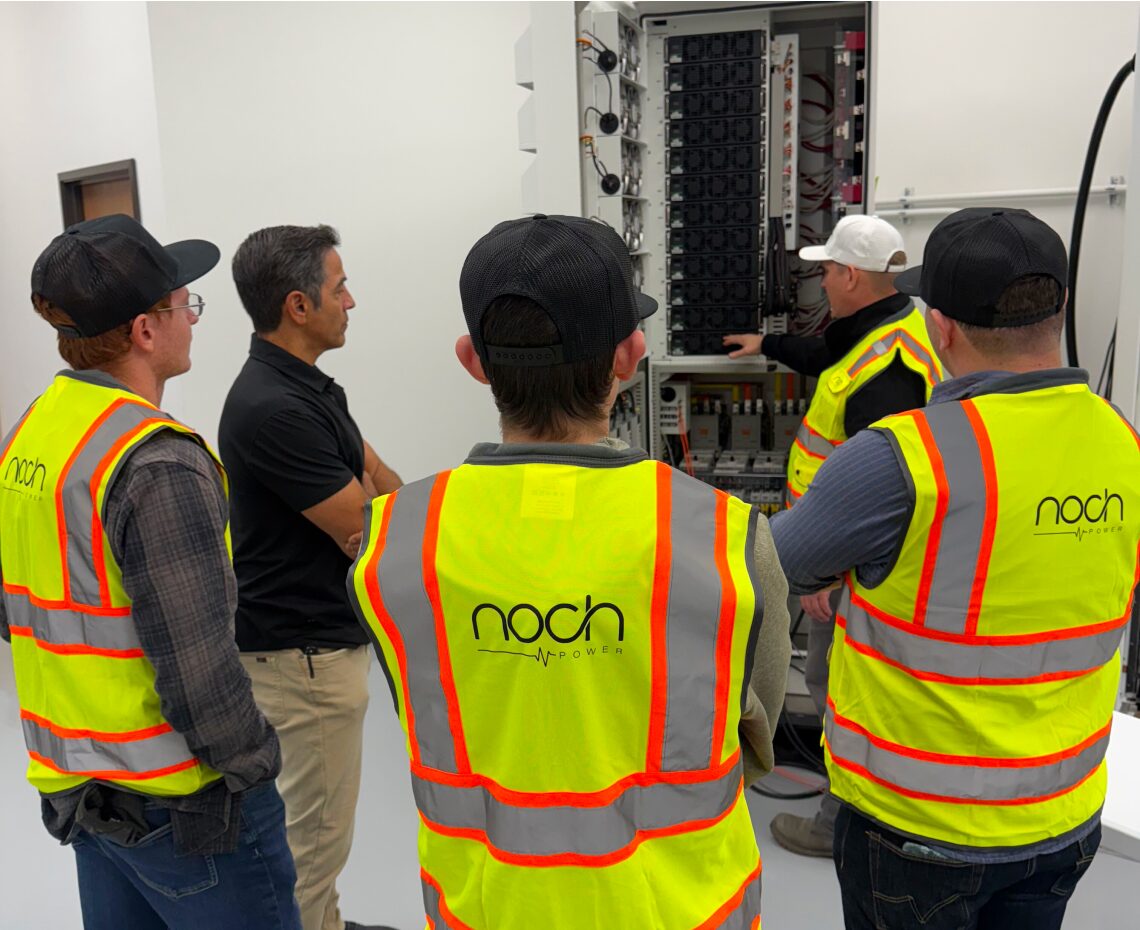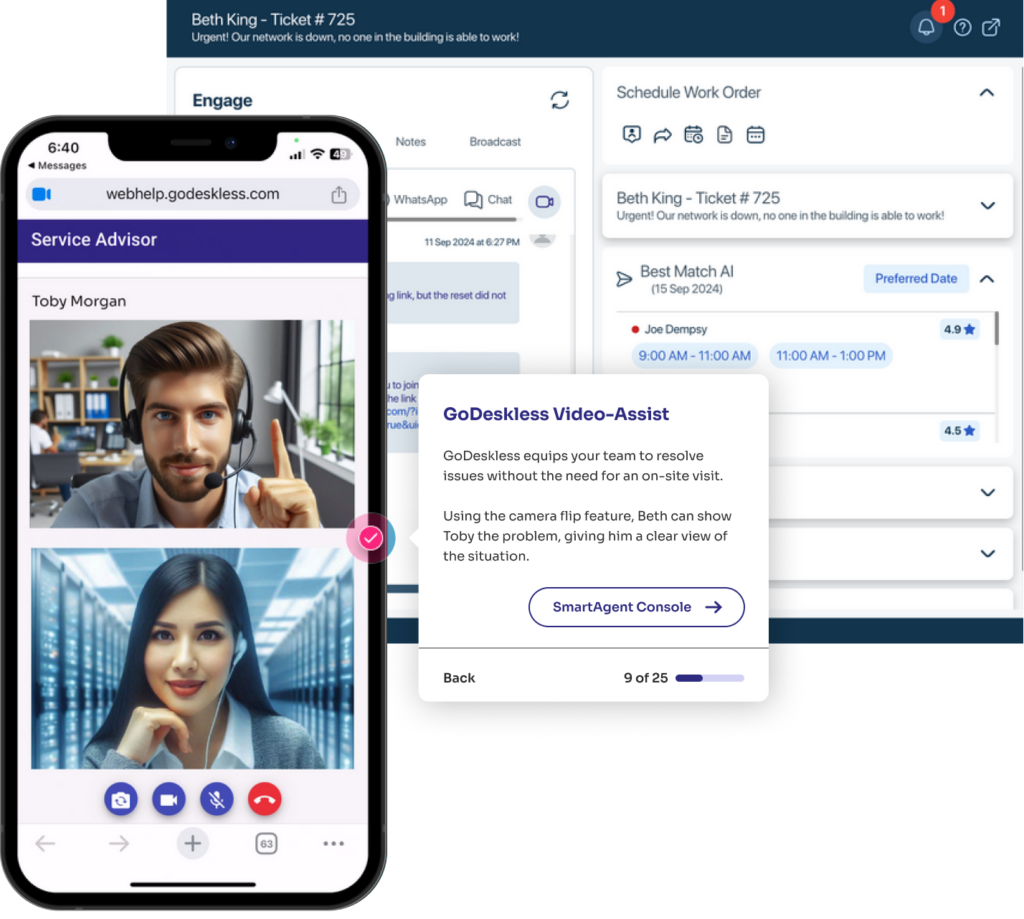Executive Summary:
- Traditional field service solutions are quickly becoming obsolete due to the lack of deskless technology;
- New normals are forcing business model transformation and the consumerization of field customer engagement;
- Untethering the deskless field engagement experience from CRM allows businesses to eliminate costly CRM Field Service licenses and address changed business dynamics.
Non-desk workers make up the supermajority of the global workforce. Approximately 2.7 billion employees from around the world are part of the deskless workforce. Those deployed in every kind of field service management – from operating heavy equipment, to stacking boxes in warehouses, or meeting clients on-site – comprise 80% of the world’s workers.
Many of what we consider essential industries, including manufacturing, construction, retail, healthcare, and transportation, rely heavily on deskless workers. Think field technicians, warehouse staff, flight crew, utility workers, and so on. In contrast, desk-based employees make up only 20%, or a fifth, of the total workforce population.
The growing popularity of on-demand service businesses, plus the disruptions caused by COVID-19, fueled a massive need for gig workers. Uber drivers and food delivery workers are among those who remained employed as the coronavirus crisis raged. But with enterprises forced to move their work from the office to the digital space, many found hiring freelancers to be the solution.
A recent study by PYMNTS revealed that 80% of firms now deploy a combination of full-time and contracted employees to meet their needs. This establishes gig workers as a crucial demographic segment in the overall deskless workforce population. But at the same time, it puts significant pressures on firms that deploy deskless employees to invest in tools that fully unlock their potential.
Traditional CRM Field Service is Slow to Catch Up with the Deskless Technology
Desk-based workers are treated to a vast collection of office tools and platforms, including CRMs, ERPs, HR software, communication systems, and collaboration tools. By contrast, astonishingly, only 1% of the world’s technology and software funding is spent on developing tools built around the modern deskless employee.
Many of the world’s workers being denied deskless technology they need to thrive is causing a range of ill effects.
One survey found that 85% of non-desk workers don’t receive enough communication from their management, thus preventing them from fully performing their tasks. This problem stems from their limited to non-existent access to digital solutions. In a different study, 84% of non-desk workers say they want to receive information directly from top management. Unfortunately, only 24% reported hearing from corporate personnel “a few times a year” while 34% answered they “hardly ever” get any message from C-level.
The absence of modern scheduling tools also has an adverse impact on members of the deskless workforce, particularly their morale. One study highlighted how employees value flexibility in scheduling. Half of deskless employees said they missed out on important family and friend milestones, blaming their rigid, inflexible scheduling.
In a survey of 1,000 deskless workers, only 56% feel engaged and connected to their employers. The rest feel fragmented and siloed, unable to communicate and collaborate with their fellow non-desk colleagues and desk-based counterparts.
This lack of connection also impedes their access to business-critical information at the point of actual customer interaction in the field.
Call of the Time: The Need for Remote and Secure Deskless Technology Engagement
Technological advances and shifting customer expectations will further drive the growth and demand for deskless workers in the future. But to improve engagement and productivity, as well as increase customer retention, field service enterprises must invest in deskless technology.
Real-time communication not only fosters collaboration; it accelerates the field worker’s access to critical information. Whether it’s looking at a service manual to determine the appropriate screw to use, referencing a best practices guide for proper workflow, or informing dispatch of a job’s completion, being able to access, receive, and relay information and instruction in real-time is now the modern standard. Issues that once took three days to solve can now be resolved in a matter of minutes.

Real-time access to information results in better efficiency and productivity. Deskless employees who work in the field are able to pick the most optimal route, engage customers with a more personalized approach, even discover opportunities for upsell and cross-sell.
Being connected to their desk-based counterparts and to their organization gives field service workers a higher sense of satisfaction and engagement, which contributes to better retention rates. It breaks down communication barriers and prevents workers from being siloed in the field, separate from their organization.
A Step Towards a Bright Future for Deskless Workers
The good news is that several major industries that deploy field service employees now plan to increase their investment in deskless technology. The Rise of The Deskless Workforce reported that 82% of firms with a substantial number of non-desk employees plan to empower their human workforce by increasing their tech spending. In terms of industries, the Transportation sector (100%) is wholly committed to its deskless technology initiative. Manufacturing (91%) comes in at second, with Retail (83%), Hospitality (82%), and Construction (78%) rounding up the top five.
However, the reality is that the majority of enterprises are yet to launch their deskless technology initiatives. Most deskless employees still resort to consumer-grade apps to address their communication and collaboration needs. While it provides an easy fix, utilizing non-secure platforms exposes workers and their employers to a number of risks.
The primary challenge for companies using consumer grade-apps is that these tools are not connected to the CRM workflows. As a result, users get a disjointed experience. Also, for compliance reasons, all communications need to be stored against the appropriate, with a view to future audits. Consumer-grade apps almost never offer this level of record-keeping.
Another challenge is that deskless workers don’t have a say in the planning and acquisition of deskless technology. Purchasing of deskless technology is mostly decided at the top. 51% of buying decisions are made by the C-suite, 38% by mid-level managers, and only 11% by the end-user.
To ensure a better future for the deskless workforce, companies not only have to invest in the right technologies, but also involve their deskless employees to gain a better understanding of what they really need to become efficient and productive assets to their organizations and provide better service and value to their customers.
Empower Your Deskless Employees with GoDeskless
At GoDeskless, we work constantly to create and improve the technology and tools that fully transform your deskless field workers into your most valuable assets, enabling them to completely engage customers in the field and bring more value to both your organization.
Here’s how we do it:
- Our solutions focus on the field customer interactions while keeping the “system of records” context, from the base CRM or ERP. Our GoDeskless software seamlessly integrates with your existing CRMs, providing you with that familiar “in your app” experience that makes tasks easier and more productive.
- Anchored in our “mobile-first” methodology, GoDeskless transforms an ordinary smartphone into a powerful field engagement and service tool. Businesses can white-label / brand GoDeskless and thus achieve their time to market goals comfortably in days instead of months.
- Most importantly, GoDeskless helps you break free from your desk-based apps, totally untethering the field engagement experience from the traditional CRM software. This allows businesses to cut down on the costly specialized Field Service licenses and fully embrace deskless technology.





